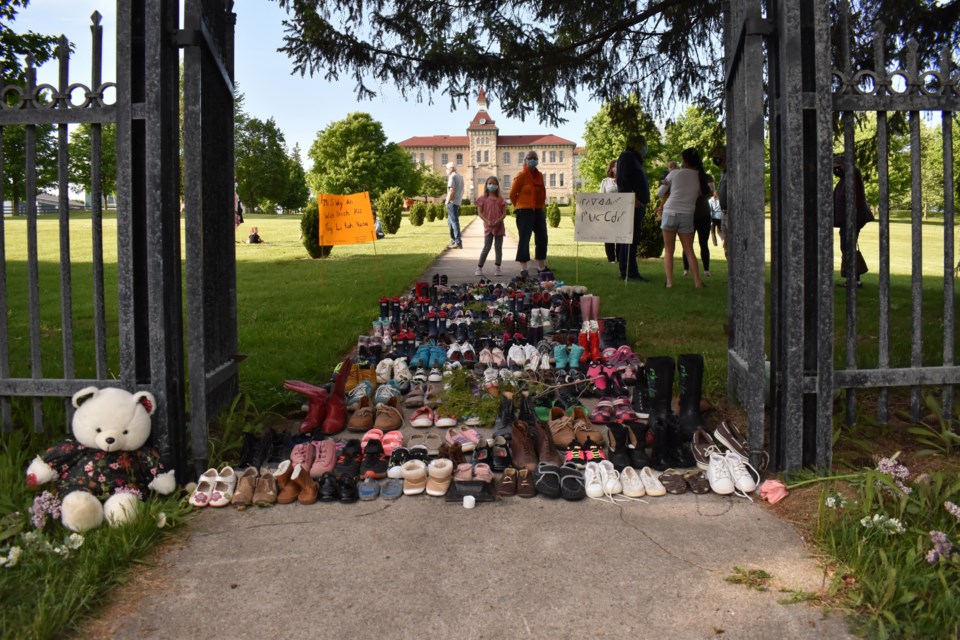Over 100 pairs of children's shoes in dozens of rows lined the stairs at the gates leading up to the Wellington County Museum and Archives (WCMA).
They will remain there until Tuesday evening as a reminder of last week’s discovery of a mass grave of at least 215 Indigenous children at a former residential school in Kamloops, BC.
Organizers said the memorial was created as a way for the community to mourn and to acknowledge a long-standing systemic issue.
Observers came solo, in pairs and with families to add more shoes and make new rows to reflect on Canada’s history and current reality.
Merv McLeod, a member of the Kashechewan First Nation in northern Ontario, was one of those who attended the vigil at the museum grounds.
In an interview before the vigil, McLeod said vigils like this can be an important display as First Nation problems have remained unseen by the public at large.
“I think it is important for more public awareness of the issues we’re dealing with and why those issues are important,” McLeod said. “More importantly, to be able to pressure politicians to move things forward.”
McLeod is a partner in Fergus-based McLeod-Wood Associates Inc., a consulting firm specializing in providing business, negotiations and community engagement services to First Nations, governments and private-sector businesses.
When it comes to looking for answers and solutions to problems First Nations face, he turns to his education in public administration and policy.
“We’re still dealing with a lot of impact from 150 to 200 years of Canadian government policy ... to basically eliminate the indian and turn them into Canadians for a lack of a better term,” McLeod said.
One of these policies led to the creation of residential schools which remained part of Canada until the last closed in 1996. McLeod attended but did not live at one in Moose Factory decades ago.
“I think back and think about what was missing in my education?” McLeod said. “I didn’t have history, I knew very little about the Hudson’s Bay Company and at the end of Grade 8 I had a Grade 5 education.”
He said the Canadian government has to get serious to get Indigenous affairs out of a continual crisis mode and vigils like the one at WCMA and around Canada could be too loud to ignore.
“I still think from a Canadian government policy perspective, the quieter it is that’s a preference because it’s a big spend if they were actually going to fix this,” McLeod said.
“There are some big numbers (cost) floating around but it doesn’t come close to fixing the issue or fixing the issue properly.”
A 24-hour National Indian Residential Schools Crisis Line is available for anyone experiencing pain or distress as a result of their residential school experience at 1-866-925-4419.



